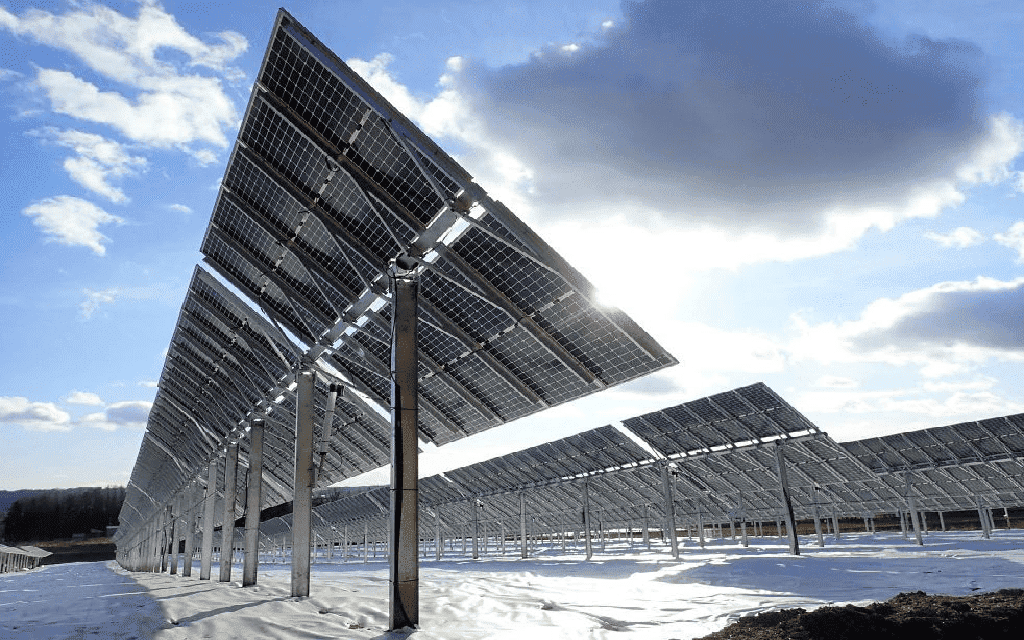How does a solar panel work?
Solar panels are actually made up of groups of photovoltaic (PV) cells that take energy from the Sun to produce electricity. These PV or photovoltaic cells convert sunlight into electricity by establishing an electric field between a positive charge on one side and a negative charge on the other.
Solar panels are devices that convert sunlight into electricity. The basic principle behind solar panels is the photovoltaic effect. The photovoltaic effect refers to the property of certain materials to convert light energy into electrical energy. Solar cells, the building blocks of solar panels, are made of silicon semiconductor materials that have been doped with impurities to create a positive and negative charge.
When sunlight falls on the solar panel, it knocks out electrons from the silicon atoms in the solar cells. These electrons are then collected by the conductive metal plates attached to the solar cells to create a flow of electrical current. The flow of electrons from the solar cells is direct current (DC) electricity, which is not suitable for household use. Therefore, homeowners usually have to use an inverter to convert direct current(DC) into alternating current (AC).These inverters are always in use in our homes and businesses.
How do solar panels generate electricity for your home?
Solar panels work by absorbing sunlight and converting it into direct current (DC) electricity. The homeowner then uses an inverter to convert this direct current (DC) into alternating current (AC). Because most electronic devices and appliances use AC electricity. Homeowners now can use this electricity or store it in the grid.
Here are the main steps for how solar panels work for your home:
1.Solar panels absorb the sun’s energy and convert it to DC electricity
2.The solar inverter converts DC electricity from your solar modules to AC electricity. Most household appliances use AC electricity.
3.Electricity flows through your home, powering electronic devices
4.Excess electricity produced by solar panels is fed to the electric grid
How solar energy works?
How does domestic solar energy work?
Solar energy works by converting sunlight into electricity through the photovoltaic (PV) effect, in which photons from the sun's rays bang electrons out of their atomic orbit and direct them into an electric current.
How does solar energy work at night?
Solar panels need sunlight to generate electricity and therefore do not generate electricity during the day.
However, domestic solar systems often generate excess electricity during the day. Batteries can store excess electricity or sent to the local grid in exchange for net metering credits. This is how solar owners stay powered when the sun is not shining.
Do solar panels work on cloudy days?
Solar panels can still generate electricity on cloudy days, although not as efficiently as on sunny days. Solar panels can capture both direct and indirect light (light passing through clouds), but their efficiency is about 10-25% of normal efficiency when it is cloudy.
However, cloudy days can be beneficial as rain will wash away the panels and improve their overall efficiency.
conclusion (How does a solar panel work?)
In summary, solar panels work by converting sunlight into electricity through the photovoltaic effect. They are made up of solar cells, which are made of silicon semiconductor materials. The flow of electrons from the solar cells is direct current (DC) electricity. The inverter converts DC electricity into AC electricity . Solar panels can generate significant amounts of electricity in areas with abundant sunlight and can be a clean and renewable source of energy.
Overall, solar panels offer a renewable and environmentally friendly source of energy. Solar panels can power homes, businesses and even entire cities.By understanding the process behind how solar panels work, individuals and organizations can make informed decisions about whether to invest in this technology and how to maximize its efficiency.
